Facts, news & background information on Alimentation Couche-Tard and the upcoming purchase of 7-Eleven from Seven & i Holding.
The relentless search for growth enters the next round at Alimentation Couche-Tard.
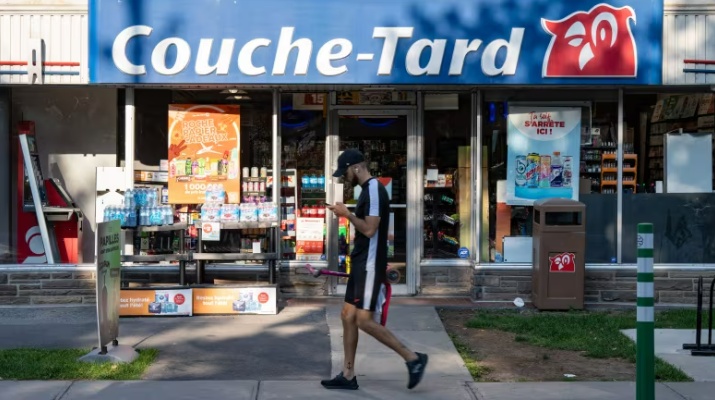
An ATD store in Montreal
Alimentation Couche-Tard started in Quebec in 1980 with a single store. Now there is a good chance that the retailer will take over the largest convenience store operator in the world: 7-Eleven.
Currently, 7-Eleven's more than 84,000 stores worldwide are owned by Japanese retail giant Seven & i Holdings, which rejected a 38.5 billion dollar offer from ATD earlier this month.
However, with the door still open for future deals and ATD reportedly considering increasing its offer price, it is possible that the Canadian company is on the verge of an acquisition that would make it one of the largest retailers in the world.
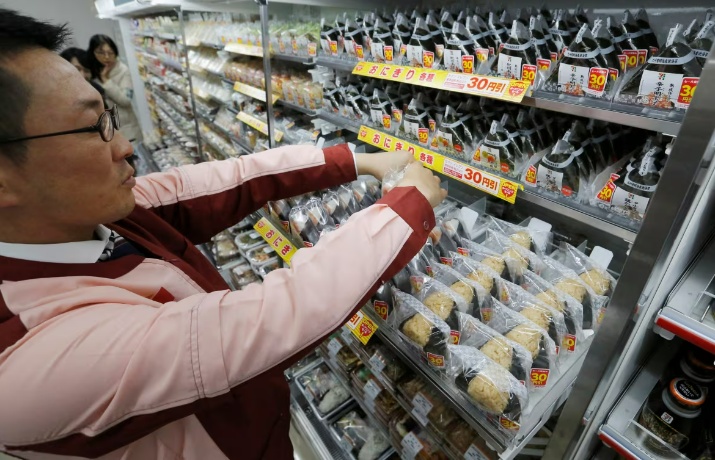
7-Eleven employees at the 7-Eleven supermarket in Tokyo
Alain Bouchard founded the company 44 years ago with the first store in Quebec. The store was modeled after the Quebec Depanneur, a regional corner store unique to the province.
Through a series of acquisitions, Bouchard transformed the chain into a global convenience store brand that is now one of Canada's largest companies and one of the world's largest convenience retailers.
Yan Cimon, a professor of strategy at Laval University's business school in Quebec City, said the company has always been "in a relentless pursuit of growth." "But it's a pursuit of what I would call disciplined growth," he said. "That means when you look at how ATD selects the assets it wants to acquire, the company knows very well what price it should pay and what price it could pay to make the asset profitable and create value."
The company now operates more than 16,000 convenience stores in North America and Europe, mostly under the brand names Couche-Tard, Circle K and On The Run. A takeover of Seven & i would be its crown jewel.
According to Cimon, part of the strategy behind the acquisitions is to adapt the offering in the various countries so that it is tailored to the culture and regional preferences of the respective country.
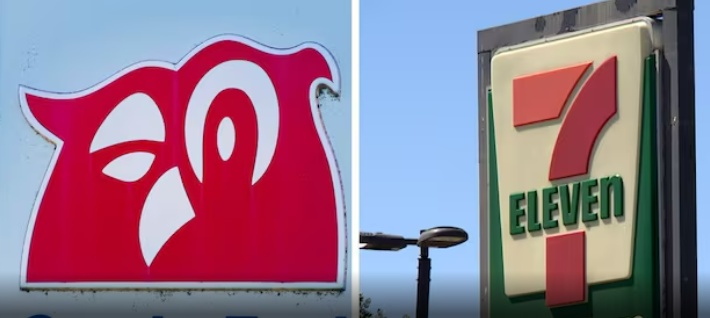
The company's first acquisition was in 1985 in the form of 11 convenience stores in Quebec City. Couche-Tard subsequently bought two more convenience store brands, and in 1987 acquired Sept-Jours-stores into its portfolio in 1987 and bought 60 Mac's-stores in 1993. The latter brand became Circle K in 2015.
Couche-Tard acquired 86 stores from the corner store operator Perette in 1994.
Alimentation Couche-Tard then expanded beyond its home province in 1997 by acquiring C-Corp Inc. a subsidiary of the grocery chain Provigowhich included stores in Quebec, Ontario and Alberta.
The distinctive red logo, a winking night owl, comes from this acquisition. The term couche-tard itself refers to a person who stays up late, or a "night owl".
The convenience brand bought its competitor in 1999 Silcorp Ltd. of Toronto, and then acquired a 30-store chain called Tabatout, more than 100 Dunkin' Donuts stores and 13 Quali-T corporate stores in the 2000s.
However, the company's real "growth spurt" came with the acquisition of the assets of the Norwegian oil company StatOil in 2012, says Cimon.
"The Scandinavian deal essentially showed that they could buy large assets overseas at a price that was acceptable to them, a price that allowed them to create value," he explained.
"It also proved that they could run a low-margin business, like corner stores or dépanneurs do, but they could do it in a very different cultural context to what we know from North America."
On the same day that Alimentation Couche-Tard announced its offer to Seven & i, the company also announced the acquisition of GetGo Cafe and Markets from Giant Eagle Inc. The company expects to close the deal sometime in 2025.
While the acquisition of French grocery retailer Carrefour fell through in 2021, Couche-Tard announced earlier this year that it would acquire some assets from TotalEnergies SEa French oil company, at the beginning of the year.
The deal brought Couche-Tard to Germany, the Netherlandsto Belgium and Luxembourg.
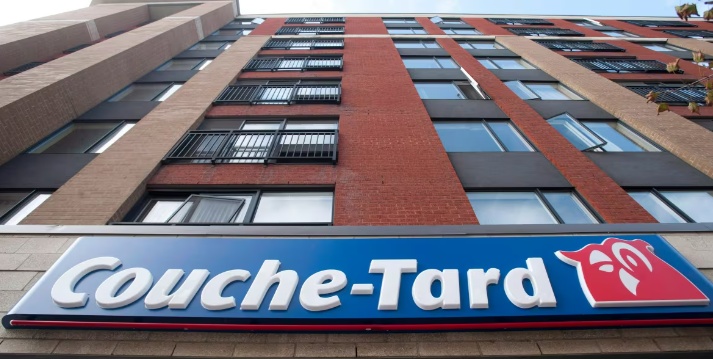
However, due to the size of its business, Seven & i represents a new challenge for Couche-Tard.
"If they're going to buy a conglomerate as large as Seven & i Holdings, at some point they're going to have to rethink the operational side of the business," Cimon said. He noted that Seven & i has other assets outside the convenience industry that Couche-Tard may want to sell at some point should the deal go through.
Couche-Tard made an unsolicited offer to Seven & i in August to buy the company's outstanding shares for $14.86 per share.
Seven & I rejected the deal on the grounds that it was not in the best interests of shareholders due to potential regulatory hurdles and that the offer "grossly undervalued" the company.
However, some shareholders have publicly urged the company to consider Couche-Tard's offer or suggested that it would benefit the company. This includes investor Artisan Partners, which owns more than one percent of Seven & i.
The company's rejection of Couche-Tard's offer "sets in motion a new deadline for management and the board to show how they intend to deliver more value than Couche-Tard has offered," said Ben Herrick, associate portfolio manager at Artisan.
If Couche-Tard buys Seven & i, it would be the largest acquisition of a Japanese company by a foreigner in history ‼️
The deal has yet to be approved by Canadian regulators, but Seven & i has raised concerns with the Federal Trade Commission in the US, which, under the leadership of FTC chairwoman Lina Khan, is cracking down on antitrust deals.
Couche-Tard has indicated that the company is willing to sell some of its other assets to increase its chances of gaining regulatory approval in the US. The company will also update its offer to resolve regulatory issues in Japan.
According to data from the London Stock Exchange Group (LSEG), Couche-Tard's takeover of Seven & i would be
would be the largest cash offer by a company since Elon Musk bought Twitter for more than USD 40 billion in 2022. 😱
"I think Couche-Tard is at a stage in its development where it could successfully buy a company as big as 7-Eleven or Seven & i," said Cimon.
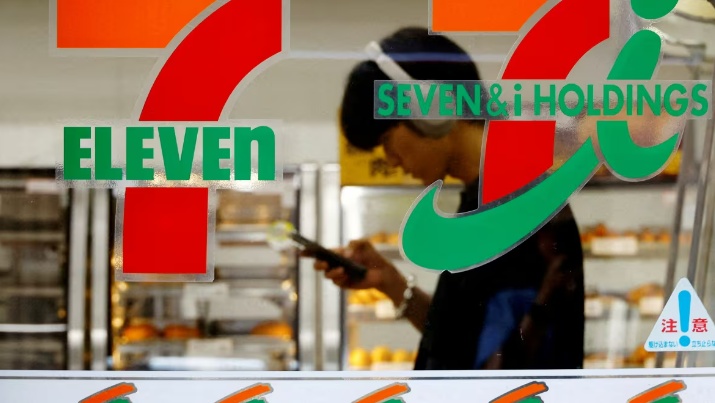
While 7-Eleven is a well-known convenience store in Canada, in Japan it has become a fixture in the culture - there are more than 21,000 of these convenience stores, or "Conbini," across the country.
Unlike their North American counterparts, they are a popular destination for foodies, offering a wide variety of prepared and fresh foods, from sandwiches to onigiri (rice balls with various fillings) and packed lunches.
The prospect of a Canadian company taking over from 7-Eleven's Japanese parent company has raised questions at home and abroad.
Earlier this year, Seven & i announced plans to introduce more than 200 food items in its US 7-Eleven stores, including some distinctly Japanese offerings. According to Reuters, this announcement was greeted with enthusiasm by food fans . It's unclear whether a Couche-Tard acquisition could affect this planned expansion of flavors in the US.
But could the acquisition also mean that onigiri will appear on the shelves of Canadian 7-Eleven stores?
When one company acquires another, it can learn from that company's best practices, says retail expert Lisa Hutcheson. But that doesn't mean everything can be adopted.
Canadians tend to go grocery shopping in bulk rather than making frequent small purchases. That means convenience stores here tend to focus on junk food and quick snacks rather than the wider range of products found in Japan, she said.
"Every country has its own culture and its own customers," she said. "The Japanese convenience store is different from the one in Canada."
Source: cbc.ca
The company $ATD (+1.09%) is currently the third largest position in my portfolio. If it goes down again, I will also reorder here with the "night owl". 😁


